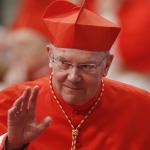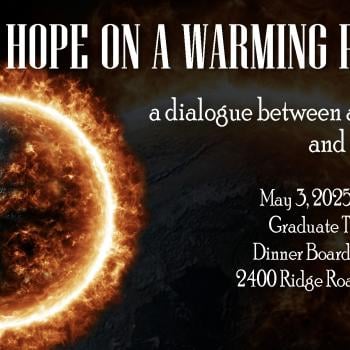Hume on Miracles
ST 4143 Miracles 3: David Hume versus Donghwi Kim
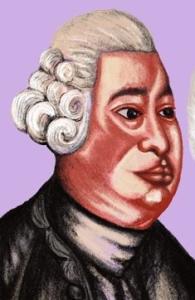
Don’t believe that any miracles have ever occurred! And, for God’s sake, don’t believe that miracles prove the existence of God! That’s the message of David Hume on miracles.
For more than two and a half centuries, Hume on miracles has been less welcome at a theologians’ barbecue than an invasion of blood-drinking mosquitoes. Hume’s predacious sting to miracle accounts simultaneously infects both miracles and the entire body of our religious thought. Can the theologian be protected by a philosophical form of DEET (N,N-diethyl-m-toluamide)? Is there a Hume repellent?
Yes. Let me introduce you to Donghwi Kim. I write this while reading Mr. Kim’s dissertation, Miracles Reconsidered: A Fresh Assessment from Philosophy, Science, and Theology. On May 17, 2023 Donghwi passed his oral defense. Mister Donghwi Kim is on the cusp of becoming Doctor Donghwi Kim.
In this and some future Patheos posts I plan to expand on Kim’s research and reflection.
Hume on Miracles
But first, Hume on miracles.
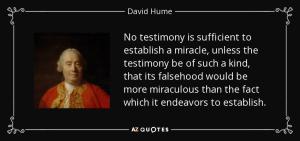 David Hume (1711-1776) defines a miracle as “a transgression of a law of nature by a particular volition of the Deity, or by the interposition of some invisible agent” (Hume 1748, X.90).[1]
David Hume (1711-1776) defines a miracle as “a transgression of a law of nature by a particular volition of the Deity, or by the interposition of some invisible agent” (Hume 1748, X.90).[1]
Hume accepted as dogma the worldview derived from Sir Isaac Newton (1643-1727). This is the mechanistic worldview in which the laws of nature function like gears in a Swiss watch. It’s the clockwork universe. There is no room in the clockwork for an extra gear or an unpredictable movement. There is no gap within which God can intervene with a miracle.
With Newton’s clockwork worldview and this definition of a miracle as premises, Hume proceeds to argue that miracles do not exist.
Why? Because no events transgress a law of nature. How do we know that no events transgress a law of nature? Because we have experienced nature as consistently regular and uniform. We have induced by reason that the clockwork universe is regular and uniform.
The determined clockwork universe is hypothesized on the basis of our past experience with nature’s regularity. Therefore, says Hume, any new experience with an irregular event must be rejected. Is this sound reasoning?
No. At least not according to evangelical Patheos columnist Jeremy Neil in “Do Miracles happen? Really?”
“In particular, to assemble evidence that miracles are highly improbable things is not to demonstrate that miracles do not occur! It is simply to demonstrate that they are highly improbable. To try to leap to the next argumentative level and, on the basis of the assertion that miracles are improbable, to say that miracles must (1) not ever occur, or (2) ought never to be believed by prudent persons, strikes me as being too aggressive with the argument’s conclusions.”
Hume’s shadow in recent centures has obnubilated New Testament studies because the marjority of scholars assume prior to investigation that Jesus’ miracles could not be historical. Jesus’ miracles could not be historical because they break a law of nature. And, we know at the level of assumption that no historical event breaks a law of nature. This is a nice tidy assumption that predetermines historical investigation before it starts.
Hume’s First Fallacy: Begging the Question
Let’s look at this again. Hume’s main argument concerning miracles is that miracles–by definition–are singular events that deviate from the established laws of nature. Such natural laws, we know, are codified as a result of past experiences. On the basis of past uniform experience, then, Hume says, “we readily reject any fact which is unusual and incredible in an ordinary degree” (Hume 1748, X.93). The uniformity of experience establishes the uniformity of nature, he contends.

Might there be a fallacy operative here? How about the fallacy of begging the question? This fallacy is also known by other names such as petitio principii, arguing in a circle, and assuming the consequent. Here’s how it appears in Hume’s treatment of miracles.
Hume assumes that common sense experience tells us correctly that the laws of nature are ordinary, uniform, and consistent. The laws of nature never go on a holiday, so to speak. When then, one perceives a miraculous event that differs from the laws of nature, one must dub this a delusion, a misinterpretation, or a lie told by overzealous religious believers.
What Hume assumes is what Hume concludes. This is the fallacy of arguing in a circle, of begging the question.[2]
Hume’s Second Fallacy: Argumentum ad Hominem (abusive)
Hume engages—hilariously, in my opinion–in another fallacy, namely, argumentum ad hominem (abusive). This fallacy is committed when one attacks the intelligence, character, motive, ethnicity, or some other such attribute of one’s opponent. In his denial of miracles, Hume argues that those who believe in miracles are ignorant, uneducated, and certainly uncivilized.[3]
“We cannot trust testimonies of witnesses to miracles? Why, because such testimonies do not come from a sufficient number of men, of such unquestioned good-sense, education, and learning, as to secure us against all delusion in themselves; of such undoubted integrity, as to place them beyond all suspicion of any design to deceive others” (Hume 1748, X.92).
Or,
“It forms a strong presumption against all supernatural and miraculous relations, that they are observed chiefly to abound among ignorant and barbarous nations; or if a civilized people has ever given admission to any of them, that people will be found to have received them from ignorant and barbarous ancestors, who transmitted them with that inviolable sanction and authority, which always attend received opinions“ (Hume 1748, X.94)[4]
Hume’s argument seems to beg the question again: those who deny miracles are more trustworthy than those who affirm miracles. And, of course, only trustworthy people are to be trusted. That’s a slam dunk argument, right!
Donghwi Kim’s Response to Hume on Miracles

Donghwi Kim summarizes Hume on miracles.
“Hume’s argument is two-pronged: (1) a general a priori argument that miracles are not scientifically possible, since they are by definition violations of the laws of nature and are absurd in themselves, and then (2) [an] a posteriori argument concerning the type of testimony provided on behalf of miracle claims” by premodern ignorant religious people (Kim 2023, 125).
I tried to show above that each of these two prongs entails fallacious reasoning. But something more important is worthy of mention. As Kim points out, Hume never explicitly demonstrates that miracles are impossible. The uniformity of nature Hume affirmed is based on induction from our experience of uniformity. This uniformitarian worldview is not a conclusion drawn from empirical science. In principle, then, a new experience with a miraculous event could worm its way into the uniformitarian worldview Hume presupposes.
From the Laws of Nature to Unique Historical Events
Every historical event is unique. Every law of nature, in contrast, describes regularities in the form of general principles. One cannot deduce a unique historical event from such general principles.
Hume puts a noose around his own logical neck by inducing his laws of nature from the cumulative human experience with unique and unrepeatable events in history. Kim stresses that miracles are unique and unrepeatable events belonging to human experience. So, miracles should count inductively in Hume’s construction of our worldview.
“In his logic on the implausibility of miracles, in my judgment, Hume clearly confuses matters of science with matters of history in the sense that he seems to treat the probability of events in history, like the miraculous, in the same way he treats the probability of repeated events described through scientific laws. In other words, Hume could be charged with contending from a category mistake (Kim 2023, 131).
The categories that Hume confuses are natural law, on the one hand, and historical event, on the other.
In blunt form, instead of studying the actual history of miracle claims, Hume makes an a priori assumption that miracles cannot occur. “In tracing the historicity of Jesus’ mirackes, the a priori assumptin that the reported miracles are impossible is a philosophically or culturally imposed premise”(Kim, 291), Kim observes. “Therefore, it is necessary to abandon such prejudices and follow reliable historical evidence”(Kim, 292).
Hume’s Third Fallacy: Misplaced Concreteness
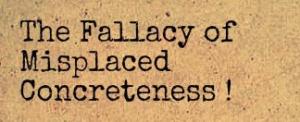
I would cite Alfred North Whitehead here. Hume has committed the fallacy of misplaced concreteness (Whitehead 1929, 1978, 7-8). This fallacy is committed when we confuse what is abstract with the concrete experience that gave rise to the abstraction in the first place.
What is concrete, in Hume’s argument, are our unique and unrepeatable historical experiences. We then induce from the uniformity of some experiences the laws of nature, we then imagine abstractly nature’s processes to be uniform, regular, and universal. What’s concrete here is our experience. What’s abstract is our formulation of natural laws. The latter dare not trump the former without committing a fallacy. I simply add this to Kim’s critical analysis of Hume.
Donghwi’s Conclusion
Here is Donghwi’s conclusion regarding Hume on miracles.
“I conclude, therefore, that Hume’s principle would demand that a researcher say that an alleged miracle event never occurred, based upon unproven, circular, and a priori judgment, and other claims which are untenable….In other words, there is no legitimate reaons to exclude the feasibility of miracle claims on the basis of scientific ‘in principle’ objections” (Kim 2023, 132-133)
Here is the alternative definition of miracle that Kim offers us.
A miracle “is a unique occurrence that happens due to divine will, which is a temporary and inexplicable exceptionto the ordinary course of nature for the purpose of showing that God has acted in history and nature”(Kim, 2023, 432).
Ted’s Conclusion
In sum, the almost Doctor Kim and I have pointed out numerous fallacies committed by Hume on miracles. But Hume’s fallacies are by no means a vaccination that will protect us from infection by the skeptic’s virus. David Hume’s reliance on a uniformitarian worldview still threatens religious belief in general and miracles in particular. We must face the proposition that the physical world is a closed causal nexus with no gaps within which God can elbow in providential care.
“A miracle can never be proved, so as to be the foundation of a system of religion,” touts Hume (Hume 1748, X.99). If the Christian faith is founded on one or more miracles, Hume’s challenge remains.
Here’s where we have been and where we are going.
Patheos ST 4141 How to see a miracle? Miracles 1
Patheos ST 4142 Two Healing Miracles for Sainthood. Miracles 2
Patheos ST 4143 Hume on Miracles. Miracles 3
Patheos ST 4144 Is Special Divine Action miraculous? Miracles 4
Patheos ST 4145 Jesus’ Nature Miracles. Miracles 5
Patheos ST 4146 Is resurrection the ultimate miracle? Miracles 6
Patheos ST 4147 The proleptic power of new creation. Miracles 7
Patheos ST 4148 Paul Lange on Miracles. Miracles 8
Patheos ST 4149 Robert John Russell on Hume. Miracles 9
Patheos ST 4150 C.S. Lewis on Miracles. Miracles 10
▓
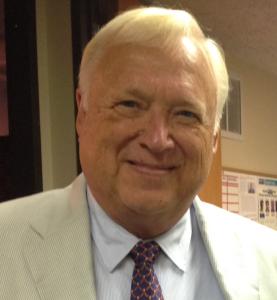
For Patheos, Ted Peters posts articles and notices in the field of Public Theology. He is a Lutheran pastor and emeritus professor at the Graduate Theological Union. He co-edits the journal, Theology and Science, with Robert John Russell on behalf of the Center for Theology and the Natural Sciences, in Berkeley, California, USA. His single volume systematic theology, God—The World’s Future, is now in the 3rd edition. He has also authored God as Trinity plus Sin: Radical Evil in Soul and Society as well as Sin Boldly: Justifying Faith for Fragile and Broken Souls. See his website: TedsTimelyTake.com.
Watch for his new 2023 book, The Voice of Public Theology, published by ATF Press.
▓
Notes
[1] Do theologians define miracle the same way philosopher Hume does? No sireee! At least according to evangelical Patheos columnist Roger Olson. “It is my considered, scholarly opinion, as a historian of Christian theology, that very few modern Christian theologians—whether liberal or conservative—would define ‘miracle’ as a violation of the laws of nature. But our best attempts to explain miracle otherwise have mostly fallen on deaf ears.” How should we theologians think? “My point is that the generally-agreed-on worldview of especially modern Christian theologians is not deistic and excludes any idea of God outside of nature such that in order to do something unusual within it he has to violate”natural laws.”[2] Kim cites both G.K. Chesterton and C.S. Lewis here. Chesterton likens reasoning in a circle to a silly dog chasing its own tail (Chesterton 1925,1955, 135-136). According to Lewis, “Now of course we must agree with Hume…if there is absolutely ‘uniform experience’ against miracles….Unfortunately we know the experience against [miracles] to be uniform only if we know that all the reports of them [miracles] are false. And we can know all the reports to be false only if we know already that miracles have never occurred. In fact, we are arguing in a circle” (Lewis, Miracles 2015, 162).
[3] Only premodern ignorant people believe in miracles. Modern educated intellectuals have discarded both miracles and religion. At least according to atheist Richard Dawkins. “The nineteenth century is the last time when it was possible for an educated person to admit to believing in miracles like the virgin birth without embarrassment…it embarrasses [educated Christians] because their rational minds know that it is absurd, so they would much rather not be asked” (Dawkins 2006, 187).
[4] To pit us moderns over against our premodern ancestors is dubbed, “chronological snobbery,” by C.S. Lewis (Lewis 1956, 207).
Works Cited
Chesterton, G.K. 1925,1955. The Everlasting Man. Garden City: Image Books.
Dawkins, Richard. 2006. The God Delusion. New York: Bantam.
Hume, David. 1748. Enquiry Concerning Human Understanding. Project Gutenberg: https://www.gutenberg.org/files/9662/9662-h/9662-h.htm.
Kim, Donghwi. 2023. Miracles Reconsidered: A Fresh Assessment from Philosophy, Science, and Theology. Graduate Theological Union Ph.D. dissertation: unpublished.
Lewis, C.S. 2015. Miracles. New York: Harper.
—. 1956. Surprised by Joy. New York: Harcourt Brace.
Vatican. 2003. “Catechism of the Catholic Church.” https://www.vatican.va/archive/ENG0015/__PX.HTM.
Whitehead, Alfred N. 1929, 1978. Process and Reality (Corrected Edition). New York: Macmillan.



